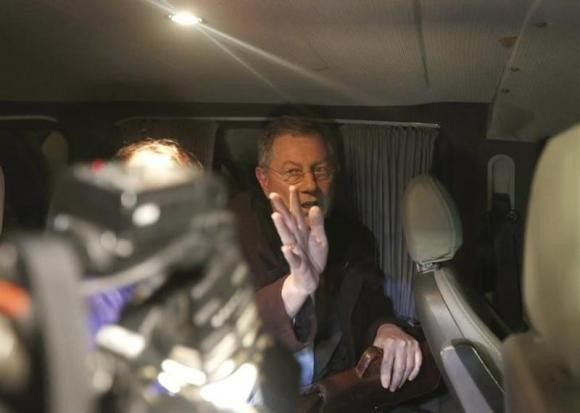Crimea's Business And Industry Facing Russian Invasion Through Forced Nationalisation

Crimea, annexed by Russia from Ukraine, is undergoing a phase of economic distress with its business and industry forced to down shutters after the Kremlin-backed administration embarked on a nationalisation spree. Though many reasons are being touted for the state takoever of businesses, analysts say it is a ruse to thwart future dissent. This has led to a serial collapse of many industries and business establishments.
According to a Business Week report, many enterprises are facing doom. The tourism industry is in tatters. That companies have lost vital suppliers and the customers are based in Ukraine are touted as other reasons for the forced nationalisation.
Forced Takeover
The businesses targeted for takeover vary from bakeries to shipyards. Crimea's Russia-backed government defends the takeovers as a curative exercise on businesses that are "inefficient" and also "strategically important." But many allege the major reason for the take over as suspected friendliness of these businesses to the Ukraine government.
On Nov 12, Krymkhleb -- the peninsula's biggest bread and confectionery maker was nationalised after accusing its owners of laundering money to finance military operations to harm pro-Russian rebels in eastern Ukraine. A company supplying flour to Krymkhleb was also taken over. The same day, the Crimean authorities seized a resort complex owned by the holding company of Serhiy Taruta. He was the Ukrainian oligarch who replaced the former pro-Russian governor of Ukraine's Donetsk region earlier this year. Crimean authorities seized the resort, alleging the management of trying to block public access to nearby park lands.
Zaliv, Crimea's largest civilian shipbuilder, was targeted in August after a bunch of men describing themselves as Crimean "self-defense" forces ransacked the company's headquarters in Kerch and demanded the management to hand over control to a Moscow-based company. Sergei Tsekov, a senator representing Crimea in the Russian parliament, told Russia news media 15 Minutes that "All enterprises on the peninsula which are operating inefficiently and are on the verge of bankruptcy, or being abandoned by their owners, will be nationalised."
State-Owned Companies
After annexation, Russia moved swiftly to nationalise many Ukrainian state-owned enterprises, which included pipeline companies to health spas. Oligarch Igor Kolomoyskiy, the pro-Ukraine governor of Ukraine's Dniepropetrovsk region, was specially targeted. His Privat Bank had to close its Crimean branches post annexation, making depositors to seek compensation from Moscow.
It has been alleged that the oligarch took away depositors' money and used them to finance military operations against separatists in eastern Ukraine, ITAR-Tass reported. Senator Sergey Aksynov argued that "It is our moral right and our moral duty to carry out this nationalisation." A fresh set of laws recently enacted by the parliament also expanded the "government's right to foreclose on private property, and seize assets of particular social, cultural, or historical value."
Criminal Dictatorship
Voices against arbitrary state control to muffle the spirit of enterprise have come out. Describing the measures as Russia's plan to turn Crimea into a "neo-Bolshevik criminal dictatorship," Russian opposition party Yabloko, in a statement, said the "action to legitimise robbery must be cancelled, stolen property returned to owners and losses reimbursed."
Besides suppressing business, Crimea is also under fire for human rights violations after it was annexed by Russia, says a Human Rights Watch report, cited by News Week. The report details instances of suffering by pro-Ukrainian activists, Crimea's Muslim minority Tatars, as targets of unlawful detention, abduction, torture and harassment" by pro-Russian paramilitary groups who are calling themselves as "self defence units."





















